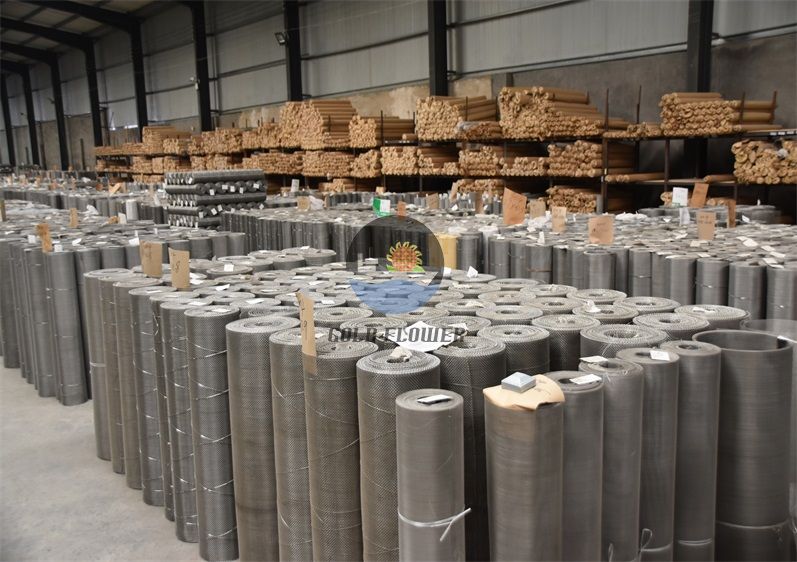Aug . 13, 2024 12:14 Back to list
High-Quality 316 Stainless Steel Mesh for Durable and Versatile Industrial Applications
The Versatility of Best 316 Stainless Steel Mesh A Comprehensive Overview
In various industries and applications, the choice of materials can significantly impact performance, durability, and overall results. One such material that has gained prominence is 316 stainless steel mesh. Known for its exceptional resistance to corrosion and strength, 316 stainless steel mesh is a preferred choice in many sectors. In this article, we will explore the characteristics, applications, and advantages of using 316 stainless steel mesh.
What is 316 Stainless Steel Mesh?
316 stainless steel is a high-quality alloy composed mainly of iron, chromium (16%), nickel (10%), and molybdenum (2%). The inclusion of molybdenum enhances the steel's resistance to corrosion, particularly against chlorides and marine environments. The mesh itself is woven tightly, offering strength and durability while maintaining a level of flexibility. This makes it suitable for a variety of applications where traditional materials may fail.
Key Properties
1. Corrosion Resistance One of the standout features of 316 stainless steel mesh is its remarkable resistance to pitting and crevice corrosion in chloride environments. This property makes it ideal for marine applications and in industries where exposure to salts and acids is common.
2. Durability The tensile strength of 316 stainless steel ensures that the mesh can withstand high levels of stress and pressure. It is less likely to deform or break under strenuous conditions, which is crucial for many applications.
3. Temperature Resistance This alloy can endure higher temperatures without compromising its integrity, making it suitable for high-heat applications where other metals might lose their strength.
best 316 stainless steel mesh

Common Applications
1. Construction and Architectural Uses 316 stainless steel mesh is widely used in architectural applications, including facades, safety barriers, and decorative elements. Its aesthetic appeal and durability make it a popular choice for modern buildings.
2. Filtration Systems The mesh is extensively utilized in water treatment plants, food and beverage processing, and chemical filtration. Its fine openings allow for efficient separation of particles while ensuring durability against corrosive materials.
3. Marine Applications Given its resistance to saltwater corrosion, 316 stainless steel mesh is ideal for applications in marine environments, such as boat fittings, rigging, and sun shades.
4. Industrial Equipment Many manufacturing industries use 316 stainless steel mesh for protective covers and guards on machinery, ensuring that sensitive components are shielded from debris and potential damage.
5. Medical Applications The medical industry relies on 316 stainless steel due to its biocompatibility and hygienic properties. It is used in surgical instruments, implants, and devices where cleanliness and safety are paramount.
Advantages of Choosing 316 Stainless Steel Mesh
Investing in 316 stainless steel mesh comes with numerous benefits. Its longevity reduces the need for frequent replacements, leading to lower maintenance costs in the long run. Additionally, its adaptability means it can be customized to fit specific needs, whether it's for a robust industrial application or a delicate architectural design.
In conclusion, 316 stainless steel mesh stands out as a premier material in a variety of fields. Its exceptional corrosion resistance, durability, and ease of maintenance make it the go-to choice for professionals seeking reliability and performance. Whether for architectural uses, filtration systems, or marine applications, 316 stainless steel mesh proves to be an invaluable material that meets and exceeds industry standards. As innovations in stainless steel technology continue to evolve, its significance in today's material science cannot be overstated.
share
-
CE Certified 250 Micron SS Mesh: Precision & Durability
NewsAug.15,2025
-
CE Certified 250 Micron Stainless Steel Mesh - Durable & Precise
NewsAug.14,2025
-
Precision CE Certified 250 Micron Stainless Steel Mesh
NewsAug.13,2025
-
CE Certified Metal Fine Mesh & Screen Fabric | Top Quality
NewsAug.12,2025
-
Premium CE Certified 250 Micron Stainless Steel Mesh
NewsAug.11,2025
-
CE Certified Stainless Steel Wire Mesh for Screen Printing
NewsAug.10,2025

